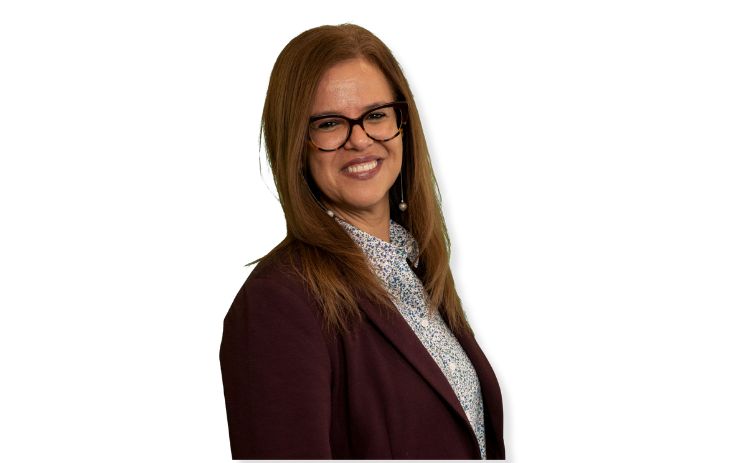Comment: COP30 in Belém: A Turning Point or Another Missed Opportunity?
Dr Patricia Prado reflects on the build-up to and outcome of the 30th UN Climate Change Conference in Belem.
21 November 2025
Last year, when I visited Belém in the Brazilian Amazon to strengthen academic partnerships, the city was buzzing with anticipation for COP30 (UN Climate Change Conference). Yet, many locals voiced concerns about whether the city could handle the influx of delegates.
Those worries were justified: COP30 has drawn over 55,000 participants, from heads of state and negotiators to scientists, activists, businesses, and Indigenous leaders. Alongside official talks, hundreds of side events amplify voices from civil society, youth, and grassroots movements. Though a vibrant space for dialogue, these summits have grown into massive global gatherings, raising questions about their own carbon footprint.

Despite logistical challenges, the real test lies in the negotiations. COP30 marks a decade since the Paris Agreement, during which the world has endured its hottest years on record. Extreme weather has devastated lives, economies and ecosystems, clearly evidencing that urgent action is needed. The first Global Stocktake at COP28 showed a huge gap between current pledges and what science demands. At Belém, countries must submit new Nationally Determined Contributions (NDCs) that close this gap and put us on track to avoid catastrophic impacts. Beyond promises, implementation across governments, businesses, and societies is critical.
Hosting COP30 in the Amazon should symbolise climate-nature alignment. Protecting forests and biodiversity is essential for reducing emissions and building resilience. Yet Brazil’s role is riddled with contradictions. Just weeks before the summit, the government authorised new oil exploration blocks in the Amazon basin, granting Petrobras the green light to drill. President Lula argues this revenue will fund the energy transition and secure sovereignty. Critics – including Climate Observatory and WWF-Brasil – warn this undermines Brazil’s credibility, threatens Indigenous rights, and could consume up to 5% of the remaining carbon budget for 1.5°C.
Agribusiness adds another layer of complexity. Brazil is the world’s largest emitter of methane, with livestock responsible for 75% of agricultural emissions – a figure that rose 6% between 2020 and 2023. Yet, agricultural methane is absent from Brazil’s NDC. While the soy-animal protein chain in Brazil is strongly associated with deforestation, meat giants like JBS and Marfrig dominate policy spaces, lobbying to weaken regulations and greenwashing their impact as part of their Meat Agenda. Despite progress in curbing deforestation, the capture of climate policy by powerful agribusiness actors’ risks derailing Brazil’s commitments.
Still, COP30 has delivered some positive signals. President Lula launched the Tropical Forest Forever Facility, pledging predictable finance for Amazon protection. Over 110 countries submitted updated NDCs, which could cut emissions by 12% by 2035 – though still insufficient for 1.5°C. Industry engagement is growing: UK steel bodies signed a global low-carbon steel agreement, and UN agencies backed initiatives like AI-enabled cooling and the “Beat the Heat” campaign. Financing remains central, with the Baku-to-Belém roadmap aiming to scale climate finance to $1.3 trillion annually by 2035.
Yet equity remains a glaring challenge. Accommodation prices soared to thousands of dollars per night, excluding many Global South delegates and shrinking representation. Indigenous and youth-led protests erupted inside and outside the venue, demanding land rights and real influence. Critics argue that finance mechanisms rely too heavily on voluntary pledges, raising doubts about their impact. As negotiations enter their final phase, the pressure is immense. Brazil’s presidency calls this the “COP of truth,” but unresolved issues – phasing out fossil fuels, scaling up finance, and embedding justice – remain critical. The draft “Global Mutirão” pact offers options on fossil fuel phase-out, adaptation finance, and trade measures, but deep divisions persist.
What’s next?
COP30 can still be a turning point. Current pledges have lowered projected warming from 4°C since the Paris Agreement was signed to about 3°C by 2100 – which is still catastrophic. Full implementation of net-zero targets and NDCs could bring this closer to 1.9°C. Achieving 1.5°C is possible – but only with deeper cuts, accelerated ecosystem restoration, and robust accountability. If COP30 fails to deliver finance, justice, and action, the Amazon risks becoming a stage for promises instead of progress. Whether Belém becomes a milestone or a missed opportunity, depends on how quickly commitments translate into real-world change.
Dr Patricia Prado is a Lecturer in Sustainable and Responsible Business at Newcastle University Business School. Her research interests lie in the intersection of sustainability and innovation, focusing on sustainable food systems and the governance of agri-food global value chains in the Global South, particularly in the Brazilian Amazon region.
